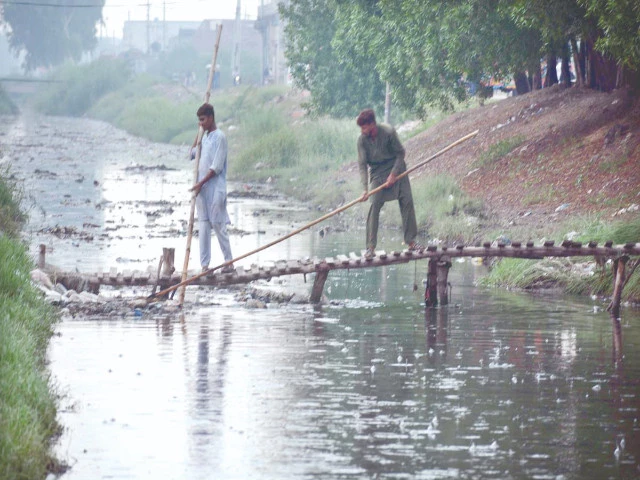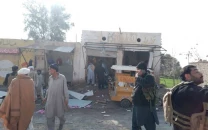PHED crippled as 2,000 water schemes stall
Machinery theft, unpaid WAPDA bills, damaged pipelines mar progress

The Public Health Engineering Department (PHED), responsible for supplying drinking water and managing sanitation across rural Punjab, has been rendered practically dysfunctional for the past three years.
Out of 3,258 water supply and sewerage schemes operating in the province's 10 divisions, as many as 1,997 non-functional projects remain in dire need of rehabilitation, yet no funds have been allocated in recent annual budgets.
According to PHED officials, the department's decline began nearly a decade ago when the Saaf Pani Company and Aab-e-Pak Authority were launched to install water filtration plants in underdeveloped areas of South Punjab with foreign funding. Their emergence led to the clipping of PHED's operational wings, mass layoffs, a freeze on recruitment, and a gradual weakening of the department.
Meanwhile, the Housing and Urban Development Department's other wings — such as development authorities and water and sanitation agencies — continued receiving substantial government budgets, foreign grants, and international loans worth millions of dollars.
Officials explained that PHED's mandate covers the entire rural population of Punjab, where thousands of water supply and drainage schemes are operated through community-based development organisations.
However, the majority of these systems now lie abandoned. A senior PHED engineer, speaking on condition of anonymity, said the number of dysfunctional projects includes 187 in Lahore, 182 in Sargodha, 149 in Gujranwala, 114 in Gujrat, 538 in Rawalpindi, 184 in Faisalabad, 144 in Sahiwal, 123 in Multan, 204 in Dera Ghazi Khan and 187 in Bahawalpur divisions.
He added that 809 drainage schemes across 39 districts have also deteriorated due to the lack of funds.
Only 56 ongoing projects — launched years earlier — remain operational, though they too are facing severe financial shortages. As a result, nearly 70% of the province's rural population has been deprived of basic water and sanitation services.
The engineer questioned how the government could claim progress toward achieving the United Nations' Sustainable Development Goals on water and sanitation by 2030 when the existing systems continue to collapse.
Explaining the reasons behind the breakdown, he said that machinery from 415 schemes has been stolen, WAPDA dues for 233 schemes remain unpaid, 461 projects have outlived their functional life, pipelines of 380 systems have been damaged, and 491 schemes have fallen victim to community neglect. In total, 1,930 water and drainage projects have slipped into complete disuse.
Spokesperson for the Housing and Urban Development Department Umer Farooq confirmed that a summary seeking funds and supplementary grants has already been sent to the Punjab government.
He said the matter is currently pending with the Finance Department, and rehabilitation work would begin once funds are released.




















COMMENTS
Comments are moderated and generally will be posted if they are on-topic and not abusive.
For more information, please see our Comments FAQ